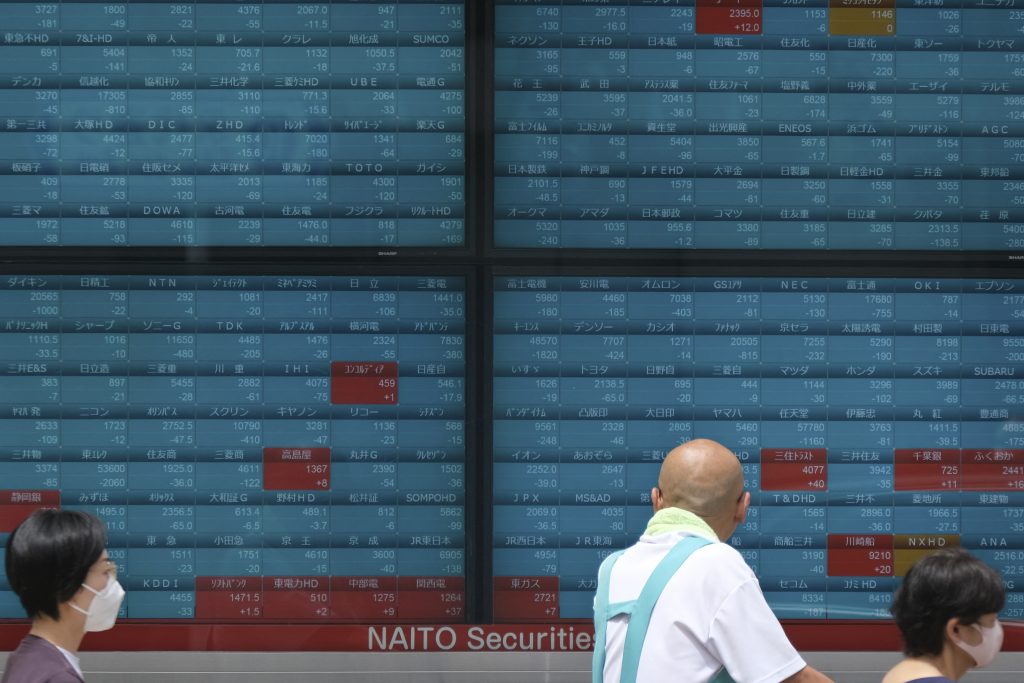
- ARAB NEWS
- 25 Apr 2024

Japan’s Nikkei share average closed sharply below the key 27,000 mark on Friday, taking cues from overnight Wall Street declines amid worries that U.S. Federal Reserve’s aggressive rate hikes could trigger recession.
However, losses were capped by strong gains for chip-related stocks amid a rise in the Philadelphia SE Semiconductor Index , along with strong earnings from IBM and domestic chip equipment supplier Disco Corp.
The Nikkei slid 0.43% to end the day at 26,890.58, not far from the intraday trough of 26,869.38. Of the index’s 225 components, 186 declined, while 35 gained, with four remaining unchanged.
The broader Topix sagged 0.71% to 1,881.98.
For the week, the Nikkei lost 0.74%, while the Topix fell 0.85%.
Rate-sensitive real estate was the Nikkei’s worst-performing sector on Friday, down 1.67%, followed by utilities, which lost 1.26%.
Energy was the only sector to keep its head above water, managing a 0.03% gain.
Although the tech sector ended lower, chip-related stocks surged, with Tokyo Electron’s 4.6% jump making it the Nikkei’s best performer. Peer Advantest advanced 1.86%.
Disco, which is not in the Nikkei, jumped 7.9%.
Investors are now looking ahead to Japanese earnings next week, when more than 300 companies are scheduled to report results, and a Bank of Japan policy meeting next Friday.
Japan’s central bank demonstrated its commitment to stimulus earlier in the day by announcing emergency bond buying for a second day to keep domestic yields in check, even as the yen sank to ever-deeper 32-year lows beyond 150 per dollar .
“In this environment of worsening investor sentiment, people are likely to focus on the bad effects of a weak yen, like rising procurement costs for exporters,” said Kunihito Seki, a fund manager at SBI Asset Management.
However, stocks moves are likely to be muted until earnings season gets properly underway, he added.
Reuters